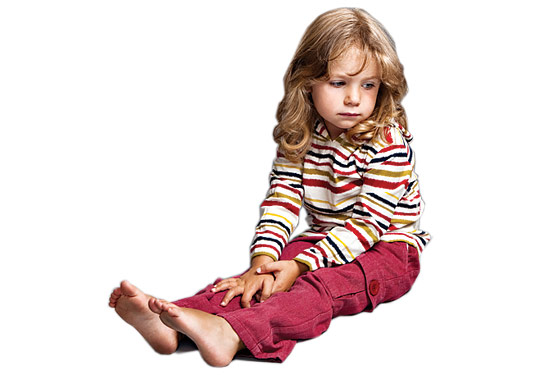
The issue of medicating children was eye-catchingly in the news last week. First, Carolyn Riley, the Massachusetts mother of a 4-year-old who had been diagnosed with attention-deficit/hyperactivity disorder and bipolar disorder, was convicted of second-degree murder for overdosing her daughter with psychiatric drugs. The following day, doctors proposed revisions to the psychiatric “bible,” the DSM-IV, in an effort to reduce the number of children diagnosed as bipolar and treated with powerful, and dangerous, anti-psychotic medications.
Though one event certainly didn’t cause the other, both of these stories fit neatly into the master narrative that for decades now has dominated our understanding of the kids-and-meds issue. This scary tale of overdiagnosis and overmedication, parental perfidy and psychiatric trickery, which is at base about preserving “natural” childhood and defending a notion of human authenticity, is driven by the notion that children with nothing much wrong with them are commonly being pathologized with essentially fictitious disorders (“so-called ADHD” being the prime example) and having their minds corrupted by unnecessary drugs. That this belief has as much currency as it does is a tragedy, because children with untreated mental-health disorders are often looking at a lifetime of grave problems.
There’s no denying that psychiatric drugs can be dangerous, that they can be abused, and that they are sometimes too easily prescribed. There’s no doubt too that childhood today is problematic—filled, in the middle and upper-middle classes, at least, with too much pressure, too little play, too many unchildlike preoccupations with school achievement and future success.
But what if our corruption-of-childhood fears and the medicating-kids issue are actually unrelated? What if psychiatric drugs, when prescribed thoughtfully and with care, can be a force for good in children’s lives? What if trivializing or denying the reality of conditions like ADHD or childhood bipolar disorder can actually keep kids from growing into healthy adults?
In recent years, researchers have found evidence that often-disputed—and sometimes romanticized—conditions like depression (world-weary melancholy) and ADHD (the daydreaminess of a budding poet) don’t represent benign states of being for a developing child. Rather, they are deviations in brain development that, untreated, feed upon themselves.
The brains of children with ADHD, it’s been demonstrated, lag developmentally three to five years behind those of other kids the same age. Two-thirds of children do not outgrow the disorder, and there are long-term psychological effects from the years of delay. The reason, according to John March, director of neurosciences medicine at Duke Clinical Research Institute, is that “it’s bad for the brain to be mentally ill. The brain grows by learning. If you’re mentally ill, what your brain learns is mental illness.”
Similarly, some specialists say that untreated anxiety disorders and depression are themselves poisons for the developing brain, sources of stress that make the brain more prone to severe depression later in life. “If you get depressed as a child or adolescent, it scars the brain,” says neuropsychologist William Stixrud.
In these cases, drugs are not just a way to palliate symptoms. They are, potentially, critical means of protecting a brain from itself. Some researchers now think that antidepressants could promote brain resilience, helping protect it from the ravages of depression. Imaging studies have shown that certain regions of the brains of ADHD children on stimulants look more like those of their typically developing peers. “The bet people are placing on the lives of American kids is that the medications are neuroprotective,” March says. “If you reduce the symptoms of mental illness, the bet is that the brain will learn to be more normal.”
Being “normal,” of course, is a big part of the problem for modern psychiatry’s critics. Why, after all, should we value normality when it is defined as conformity to the demands of an out-of-whack culture?
The problem with this argument is, nature can be cruel, and blind adherence to ideas about the natural child even crueler. Try preaching the noble beauty of honest suffering to a suicidally depressed 6-year-old. It’s probably fair to say he or she would choose happiness over authenticity any day.
Adapted from We’ve Got Issues: Children and Parents in the Age of Medication (February 23, Riverhead/Penguin). © by the author.
Have good intel? Send tips to [email protected].